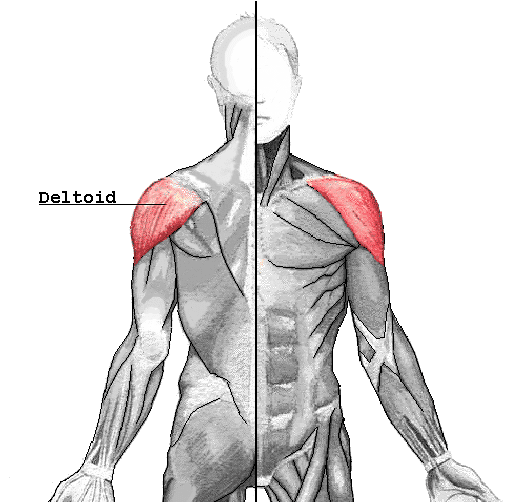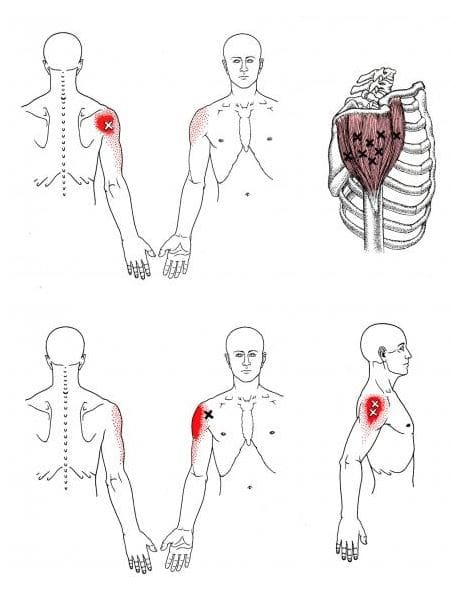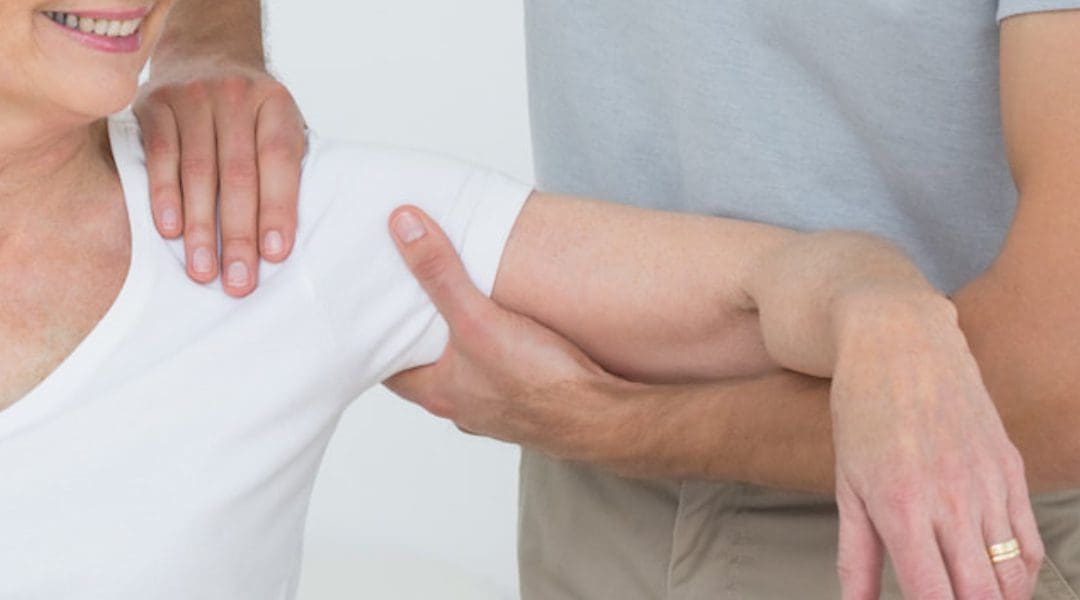Table of Contents
Introduction
The shoulders help stabilize the upper extremities of the body and provide a wide range of movements for the arms. The shoulders have many muscles, ligaments, and tendons that help support the joints from injuries and utilize the motor function to do everyday actions like throwing a ball or stretching for long distances. Even though the shoulders help stabilize the upper extremities, they are still prone to injuries since the shoulder muscles are constantly used throughout the day. One of the shoulder muscles that are continuously utilized is the deltoid muscle, which can lead to the development of trigger points when it becomes injured. Today’s article examines the deltoid muscles, how trigger points affect the deltoids and shoulders, and managing trigger points associated with the deltoid muscles. We refer patients to certified providers specializing in shoulder pain treatments to aid individuals suffering from trigger points associated with the deltoid muscles along the shoulders. We also guide and inform our patients by referring them to our associated medical providers based on their examination when appropriate. We ensure that education is a great solution to asking our providers insightful questions the patient requests. Dr. Jimenez DC observes this information as an educational service only. Disclaimer
What Is The Deltoid Muscle?

Have you been feeling pain on the top of your shoulders? Do your shoulders feel stiff when rotating them? Or do you feel radiating pain along your upper arms? Individuals with shoulder pain may be experiencing trigger points affecting their deltoid muscles. The deltoids are large triangular-shaped muscles that are associated with the shoulder girdle. The deltoids sit on top of the shoulder girdle and have anterior and posterior sections that work together with the rotator cuff muscles that provide a full range of motion to the arms. Studies reveal that the deltoid muscles have a more complex structure since the intramuscular tendons from the deltoids help provide different functions when it comes to the shoulders and arms’ motor function. According to Dr. Janet G. Travell, M.D., the anterior sections of the deltoid muscles are used in sports activities. In contrast, the posterior section works with the rotator cuff muscles for mobility. Injuring the deltoid muscles can lead to the development of trigger points associated with shoulder pain.
How Do Trigger Points Affect The Deltoids & Shoulders?

Regarding the shoulders, they can succumb to various injuries that can become an issue over time, lead to the development of trigger points in the shoulder muscles, and cause referred pain to the upper arms. Trigger points or myofascial pain syndrome along the deltoid muscles may invoke referred pain to the shoulders. Studies reveal that myofascial pain syndrome is often described as the sensory, motor, and autonomic symptoms caused by trigger points that cause tender spots on the hardened muscle to produce pain. Trigger points are a bit tricky to diagnose since they mimic other chronic conditions in the body. The deltoid muscles are superficial, and trigger points can cause referred pain to the muscles that mimic arthritis in the shoulder joints. Some of the other symptoms associated with trigger points along the shoulders and deltoids include:
- Limited range of mobility
- Tenderness in the shoulder muscles
- Muscle spasms
- Muscle pain
- Stiffness in the deltoid muscles
Pain in the shoulders can cause the body to become unstable and cause many individuals to develop a hunched position over time to reduce the pain they are feeling; fortunately, there are various ways to manage the pain associated with trigger points along the shoulders and deltoid muscles.
Trigger Point Release On The Deltoid Muscle- Video
Have you been feeling stiffness along the shoulders or the deltoid muscles? Have you experienced muscle tenderness in your upper arms? Or do you feel like being hunched over reduces the pain in your shoulders? If you have been experiencing any of these symptoms, it could be the development of trigger points associated with shoulder pain along the deltoid muscles. Trigger points cause referred pain to the affected muscle area and are developed when the muscles are overused. For the deltoid muscles, when active trigger points affect the deltoids’ anterior or posterior sections, it can cause the muscles to twitch and later cause moderate tension. The video above explains where the trigger points are located on the deltoid muscles and how to release them through palpations and massages. This is one of the techniques that can help manage trigger points from affecting the shoulders and deltoid muscles.
Managing Trigger Points Associated With The Deltoid Muscles

When dealing with trigger points associated with the deltoid muscles can be managed through various techniques that many people can utilize to reduce the pain symptoms along the upper arms and shoulders. Studies reveal that dry needling is one of the techniques that can relieve trigger points to ease the pain intensity and irritability to the shoulders. Other techniques that many people can utilize are to correct how they carry heavy objects to reduce the load on their shoulders, stretch the arms and shoulders to minimize soreness and alleviate tight muscles, and even take a hot shower to relax the shoulder muscles, can reduce the chances of trigger points from forming in the future.
Conclusion
The deltoid is located on top of the shoulder girdle and is a large triangular-shaped muscle that works together with the rest of the shoulder and the rotator cuff muscles. The shoulders have many muscles, ligaments, and tendons that provide stability and perform everyday functionality to the body. When the shoulders become injured, the affected muscles could potentially develop trigger points to cause referred pain to the shoulders and upper arms. When trigger points affect the deltoid muscles, it can cause them to have symptoms of stiffness, tenderness, and pain that mimic other chronic conditions affecting the shoulders and arms. Thankfully, various techniques relieve referred pain from the arms and help manage trigger points along the deltoid muscle. This allows the deltoid muscle to relax and reduce trigger points from developing further on the shoulders.
References
Bron, Carel, and Jan D Dommerholt. “Etiology of Myofascial Trigger Points.” Current Pain and Headache Reports, Current Science Inc., Oct. 2012, www.ncbi.nlm.nih.gov/pmc/articles/PMC3440564/.
Calvo-Lobo, César, et al. “Dry Needling on the Infraspinatus Latent and Active Myofascial Trigger Points in Older Adults with Nonspecific Shoulder Pain: A Randomized Clinical Trial.” Journal of Geriatric Physical Therapy (2001), Wolters Kluwer Health, Inc., 2018, www.ncbi.nlm.nih.gov/pmc/articles/PMC5728593/.
Elzanie, Adel, and Matthew Varacallo. “Anatomy, Shoulder and Upper Limb, Deltoid Muscle.” In: StatPearls [Internet]. Treasure Island (FL), StatPearls Publishing, 15 May 2022, www.ncbi.nlm.nih.gov/books/NBK537056/.
Disclaimer
Post Disclaimer
Professional Scope of Practice *
The information herein on "Deltoid Muscles Being Affected By Trigger Points" is not intended to replace a one-on-one relationship with a qualified health care professional or licensed physician and is not medical advice. We encourage you to make healthcare decisions based on your research and partnership with a qualified healthcare professional.
Blog Information & Scope Discussions
Welcome to El Paso's Wellness blog, where Dr. Alex Jimenez, DC, FNP-C, a board-certified Family Practice Nurse Practitioner (FNP-C) and Chiropractor (DC), presents insights on how our team is dedicated to holistic healing and personalized care. Our practice aligns with evidence-based treatment protocols inspired by integrative medicine principles, similar to those found on dralexjimenez.com, focusing on restoring health naturally for patients of all ages.
Our areas of chiropractic practice include Wellness & Nutrition, Chronic Pain, Personal Injury, Auto Accident Care, Work Injuries, Back Injury, Low Back Pain, Neck Pain, Migraine Headaches, Sports Injuries, Severe Sciatica, Scoliosis, Complex Herniated Discs, Fibromyalgia, Chronic Pain, Complex Injuries, Stress Management, Functional Medicine Treatments, and in-scope care protocols.
Our information scope is limited to chiropractic, musculoskeletal, physical medicine, wellness, contributing etiological viscerosomatic disturbances within clinical presentations, associated somato-visceral reflex clinical dynamics, subluxation complexes, sensitive health issues, and functional medicine articles, topics, and discussions.
We provide and present clinical collaboration with specialists from various disciplines. Each specialist is governed by their professional scope of practice and their jurisdiction of licensure. We use functional health & wellness protocols to treat and support care for the injuries or disorders of the musculoskeletal system.
Our videos, posts, topics, subjects, and insights cover clinical matters, issues, and topics that relate to and directly or indirectly support our clinical scope of practice.*
Our office has reasonably attempted to provide supportive citations and has identified the relevant research studies or studies supporting our posts. We provide copies of supporting research studies available to regulatory boards and the public upon request.
We understand that we cover matters that require an additional explanation of how they may assist in a particular care plan or treatment protocol; therefore, to discuss the subject matter above further, please feel free to ask Dr. Alex Jimenez, DC, APRN, FNP-BC, or contact us at 915-850-0900.
We are here to help you and your family.
Blessings
Dr. Alex Jimenez DC, MSACP, APRN, FNP-BC*, CCST, IFMCP, CFMP, ATN
email: coach@elpasofunctionalmedicine.com
Licensed as a Doctor of Chiropractic (DC) in Texas & New Mexico*
Texas DC License # TX5807
New Mexico DC License # NM-DC2182
Licensed as a Registered Nurse (RN*) in Texas & Multistate
Texas RN License # 1191402
ANCC FNP-BC: Board Certified Nurse Practitioner*
Compact Status: Multi-State License: Authorized to Practice in 40 States*
Graduate with Honors: ICHS: MSN-FNP (Family Nurse Practitioner Program)
Degree Granted. Master's in Family Practice MSN Diploma (Cum Laude)
Dr. Alex Jimenez, DC, APRN, FNP-BC*, CFMP, IFMCP, ATN, CCST
My Digital Business Card


